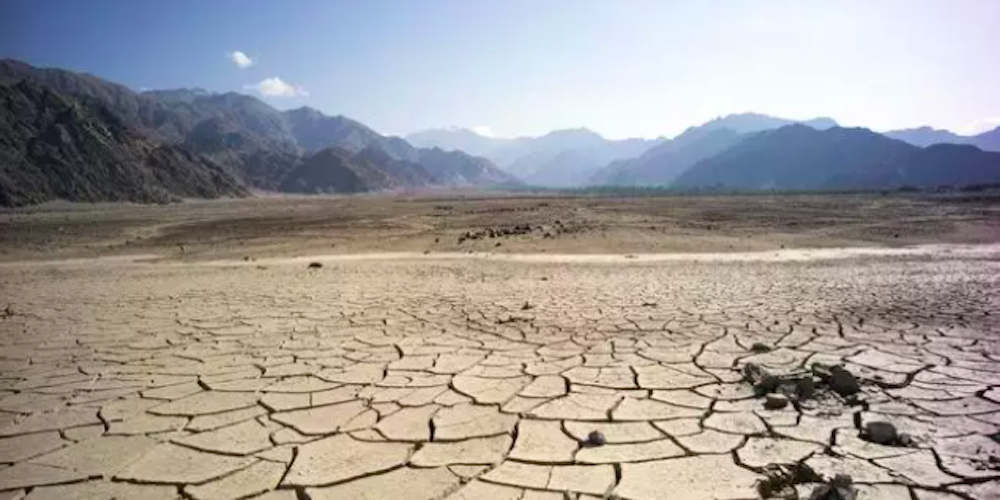India Under a Cooling Plan

India is the first country in the world to develop a comprehensive Cooling Action plan under the Montreal Protocol. The plan has a long term vision to address the cooling requirement across sectors and lists out actions which can help reduce the cooling demand. Cooling requirement is cross-sectoral and an essential part for economic growth and is required across different sectors of the economy such as residential and commercial buildings, cold-chain, refrigeration, transport and industries.
The India Cooling Action Plan (ICAP), which was enunciated in 2019, provides an integrated vision towards cooling across sectors encompassing, inter alia, reduction of cooling demand, refrigerant transition, enhancing energy efficiency and better technology options by 2037-38 through forging synergies with on-going programmes/ schemes of the Government.
The India Cooling Action seeks to (i) reduce cooling demand across sectors by 20% to 25% by 2037-38, (ii) reduce refrigerant demand by 25% to 30% by 2037-38, (iii) Reduce cooling energy requirements by 25% to 40% by 2037-38, (iv) recognize “cooling and related areas” as a thrust area of research under national S&T Programme, (v) training and certification of 100,000 servicing sector technicians by 2022-23, synergizing with Skill India Mission. These actions will have significant climate benefits.
The following benefits would accrue to the society over and above the environmental benefits:
(i) Thermal comfort for all – provision for cooling for EWS and LIG housing,
(ii) Sustainable cooling – low GHG emissions related to cooling,
(iii) Doubling Farmers Income – better cold chain infrastructure – better value of produce to farmers, less wastage of produce,
(iv) Skilled workforce for better livelihoods and environmental protection,
(v) Make in India – domestic manufacturing of air-conditioning and related cooling equipments,
(vi) Robust R&D on alternative cooling technologies – to provide a push to innovation in the cooling sector.
Cooling is also linked to human health and productivity. Linkages of cooling with Sustainable Development Goals (SDGs) are well acknowledged. The cross-sectoral nature of cooling and its use in development of the economy makes provision for cooling an important developmental necessity. The development of ICAP has been a multi-stakeholder inclusive process encompassing different Government Ministries / Departments / Organizations, Industry and Industry Associations, Think tanks, Academic and R&D institutions.
As informed by Shri Ashwini Kumar Choubey, Minister of State, Ministry of Environment, Forest & Climate Change in Lok Sabha recently, following steps have been taken to implement the recommendation of various thematic areas of the ICAP:
(i) With regard to reduction of cooling and energy demand in Space Cooling in the building sector, a list of action points have been finalised after mapping the recommendations of the India Cooling Action Plan with the ongoing government programmes/ schemes of the various Ministries.
(ii) Towards promoting passive cooling in buildings, the Bureau of Energy Efficiency (BEE) has brought out the Energy Conservation Building Code (ECBC) for all large commercial (non-residential) buildings and Eco-Niwas Samhita (ECBC-R) for the residential buildings.
(iii) Studies on promoting non-Ozone Depleting Substances (ODSs) and low Global Warming Potential based technologies in Cold Chain, Building sector and Public Procurement have been undertaken and reports have been published.
(iv) To promote indigenous development of low global warming potential refrigerants, the Department of Science and Technology, Government of India has funded a research project to the Council of Scientific and Industrial Research (CSIR)- Indian Institute of Chemical Technology, Hyderabad.
(v) Indian Institute of Technology, Delhi, in collaboration with Bureau of Indian Standards has undertaken a simulation study for developing safety standards for flammable refrigerants in the Refrigeration and Air-conditioning sector.
(vi) Up-skilling and certification of 43,450 Refrigeration and Air-conditioning (RAC) service technicians has been undertaken under the national skill qualification framework (NSQF) of the Pradhan Mantri Kaushal Vikas Yojana (PMKVY) of the Ministry of Skill Development and Entrepreneurship (MSDE). In addition, 29,000 RAC service technicians are being trained as part of implementation of Hydrochlorofluorocarbons (HCFCs) phase out Management Plans under the Montreal Protocol.
It may be noted that issues relating to climate change and environmental protection are discussed in the various international environmental conventions and treaties comprising representatives from both developed and developing countries. Commitments including decisions in such conventions and treaties are arrived at after extensive discussions and following a process of consensus. India has raised the issue of disproportionate usage of the global carbon budget by developed countries that has led to global warming; their high levels of current emissions and their need to reach net zero much ahead of 2050.
India is a signatory to major global environmental conventions and treaties including, inter alia, United Nations Framework Convention on Climate Change, United Nations Convention to Combat Desertification, Convention on Biological Diversity, Paris Agreement, Montreal Protocol on Substances that Deplete the Ozone Layer, Stockholm Convention on Persistent Organic Pollutants, Minamata Convention on Mercury, Convention on International Trade in Endangered Species of Wild Fauna and Flora, Convention on the Conservation of Migratory Species of Wild Animals, etc. India has taken ambitious targets in support of global environmental goals as evidenced in its Nationally Determined Contributions for combating Climate Change under the Paris Agreement, ratification of the Kigali Amendment to the Montreal Protocol for phase down of Hydrofluorocarbons, restoration of 26 million hectares of degraded land by 2030 under the United Nations Convention to Combat Desertification and conserving 30% of land and oceans by 2030.
India engaged constructively with all member states in the fifth United Nations Environment Assembly (UNEA 5.2) in 2022 to develop consensus on the resolution for driving global action on plastic pollution.
India has also hosted the Conference of Parties to the United Nations Convention to Combat Desertification in 2019 and Convention on the Conservation of Migratory Species of Wild Animals in 2020.



